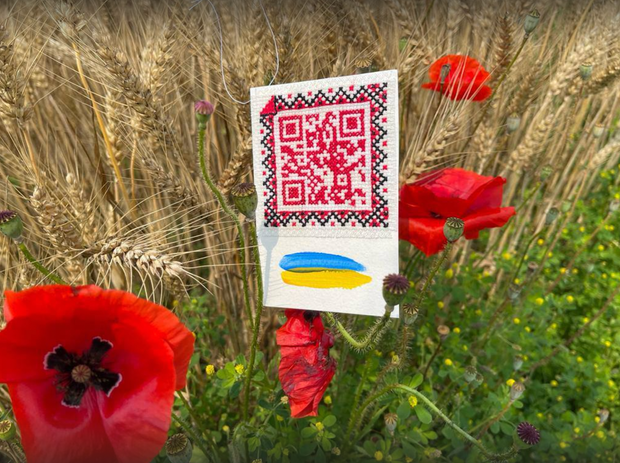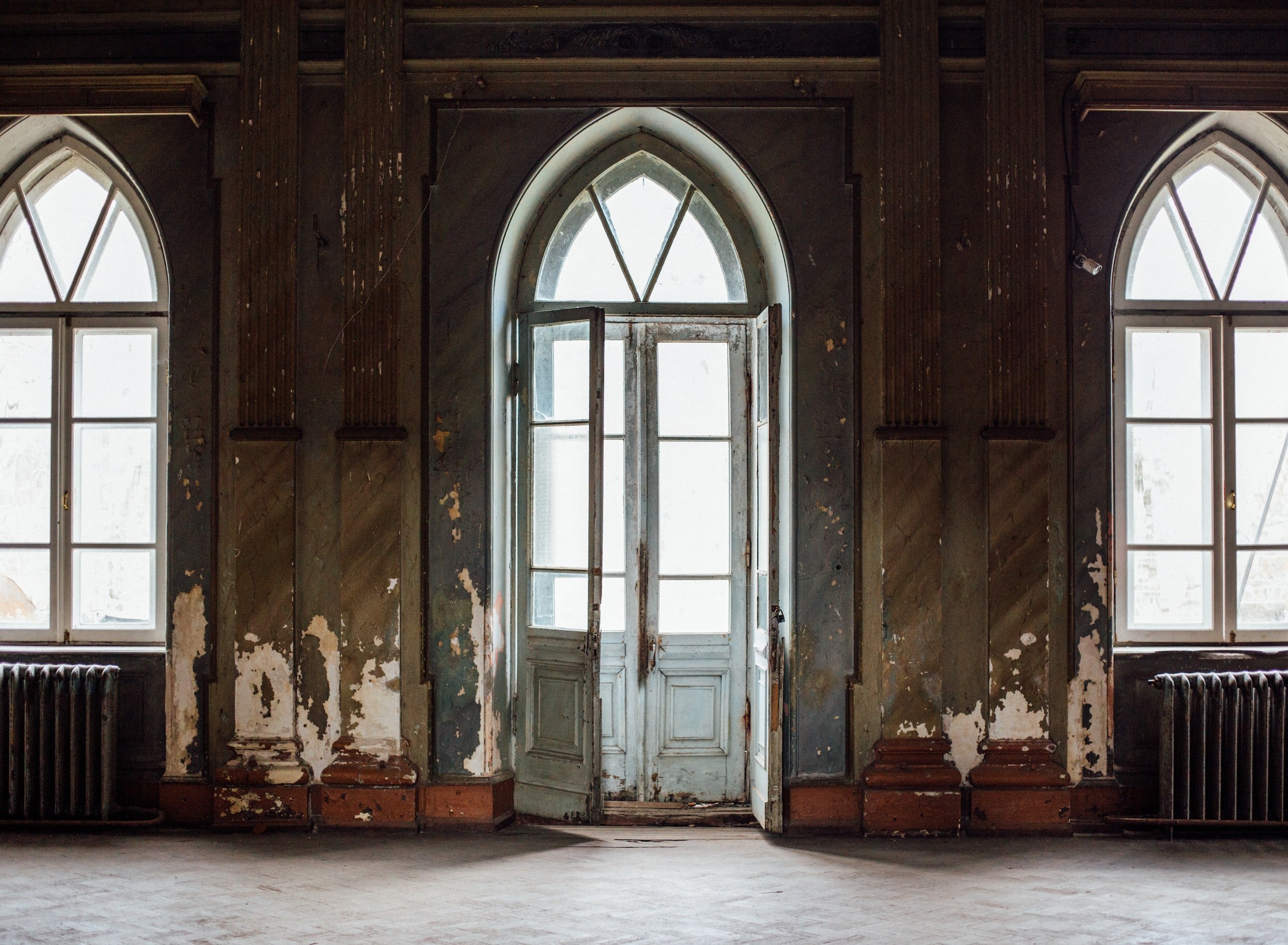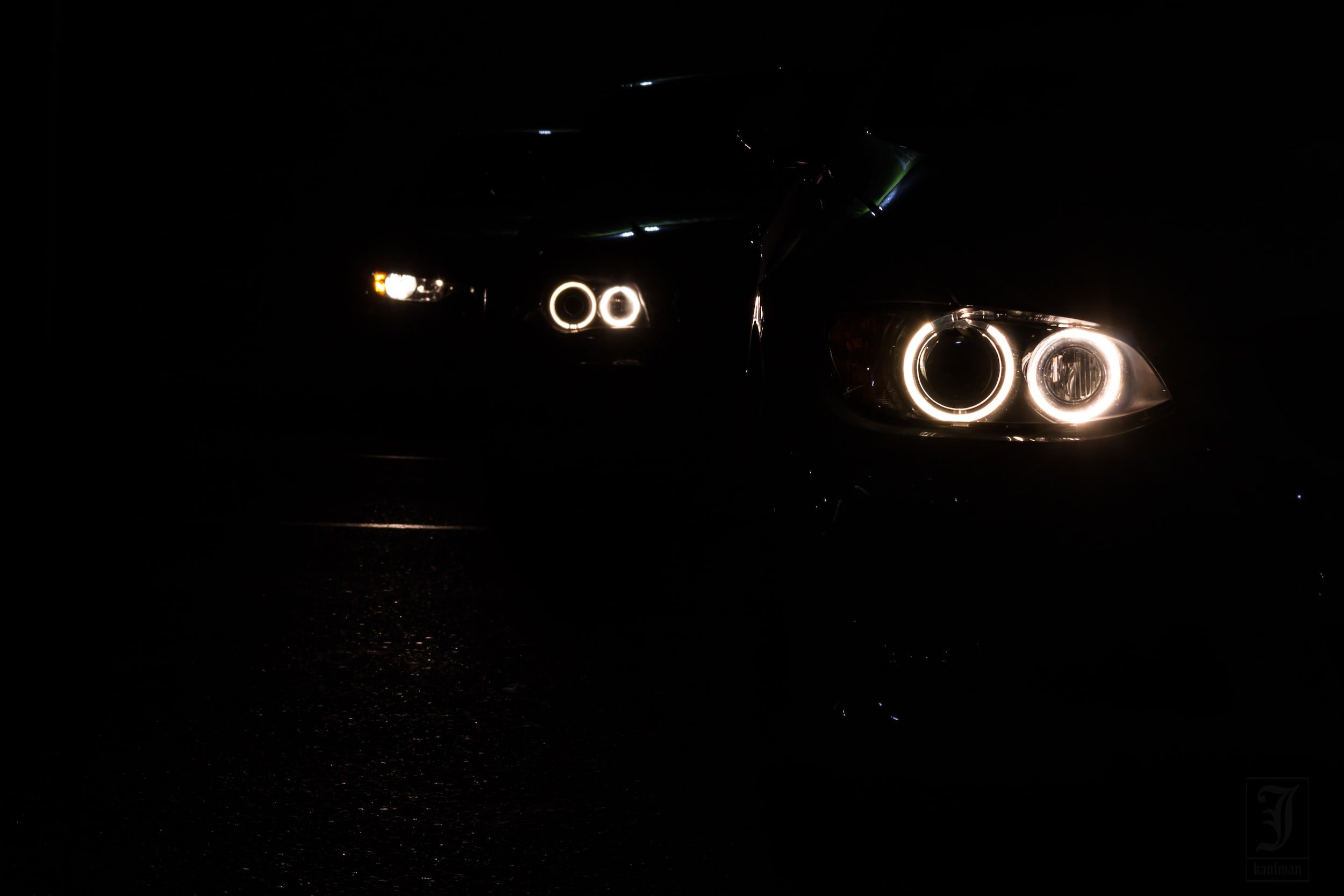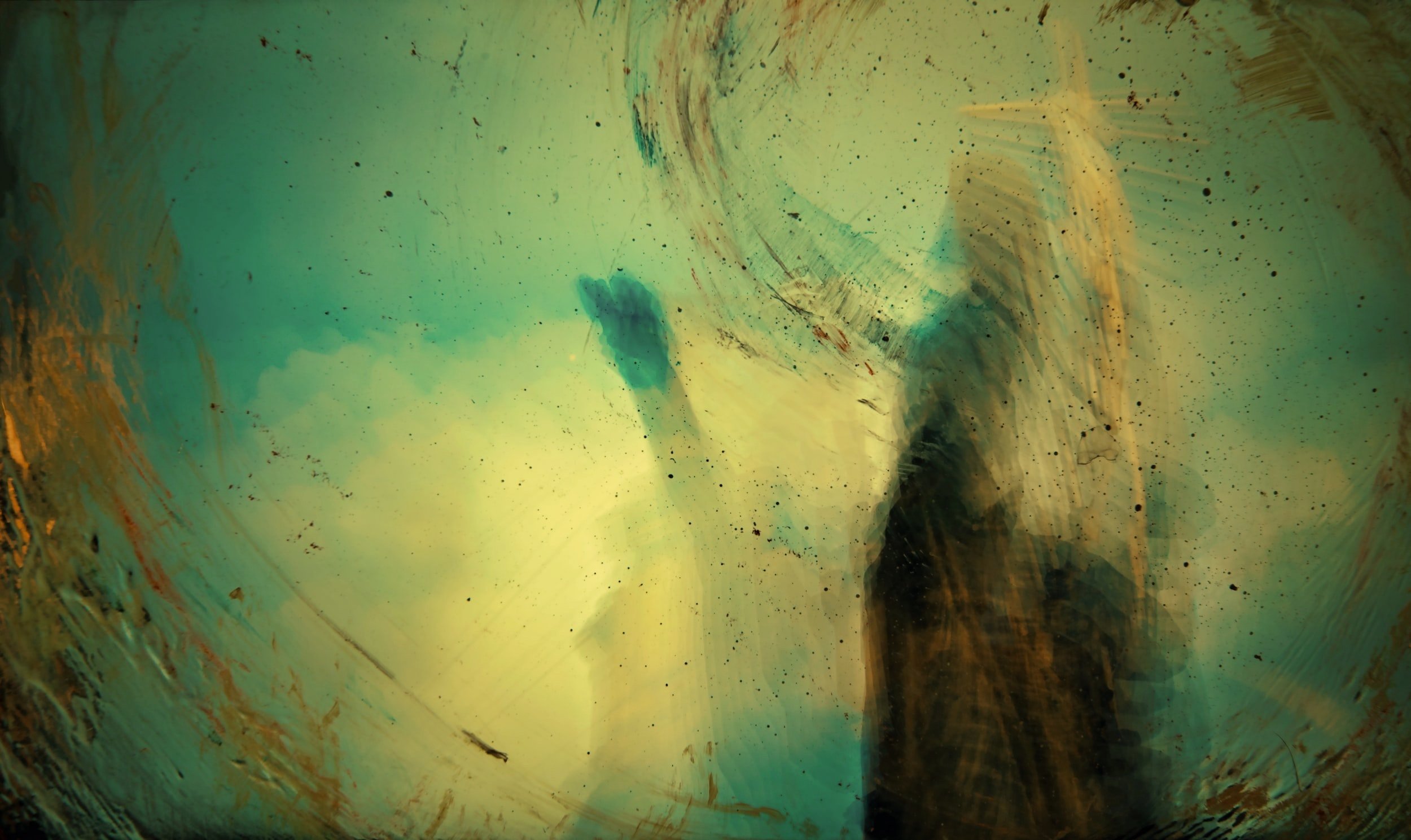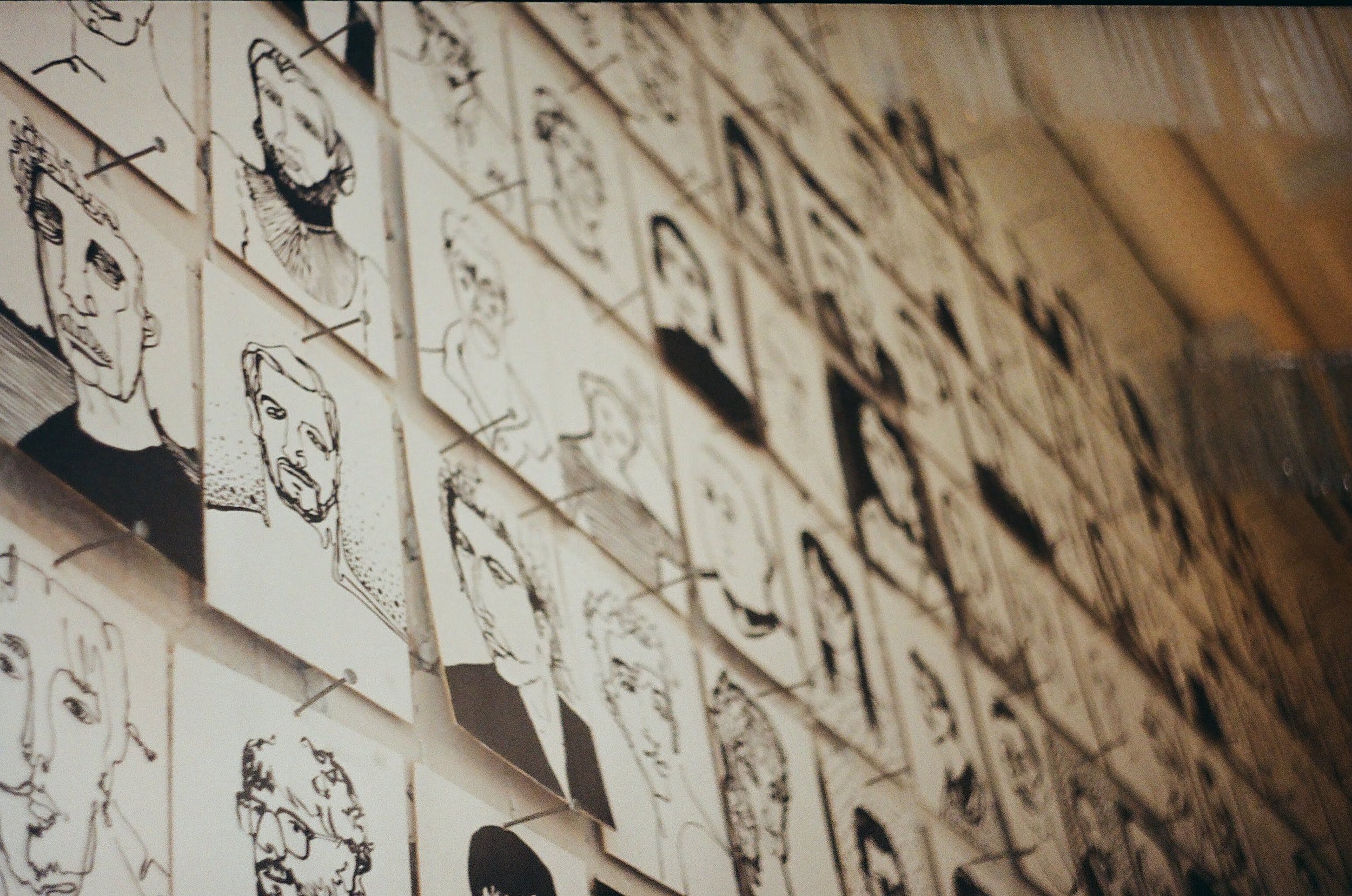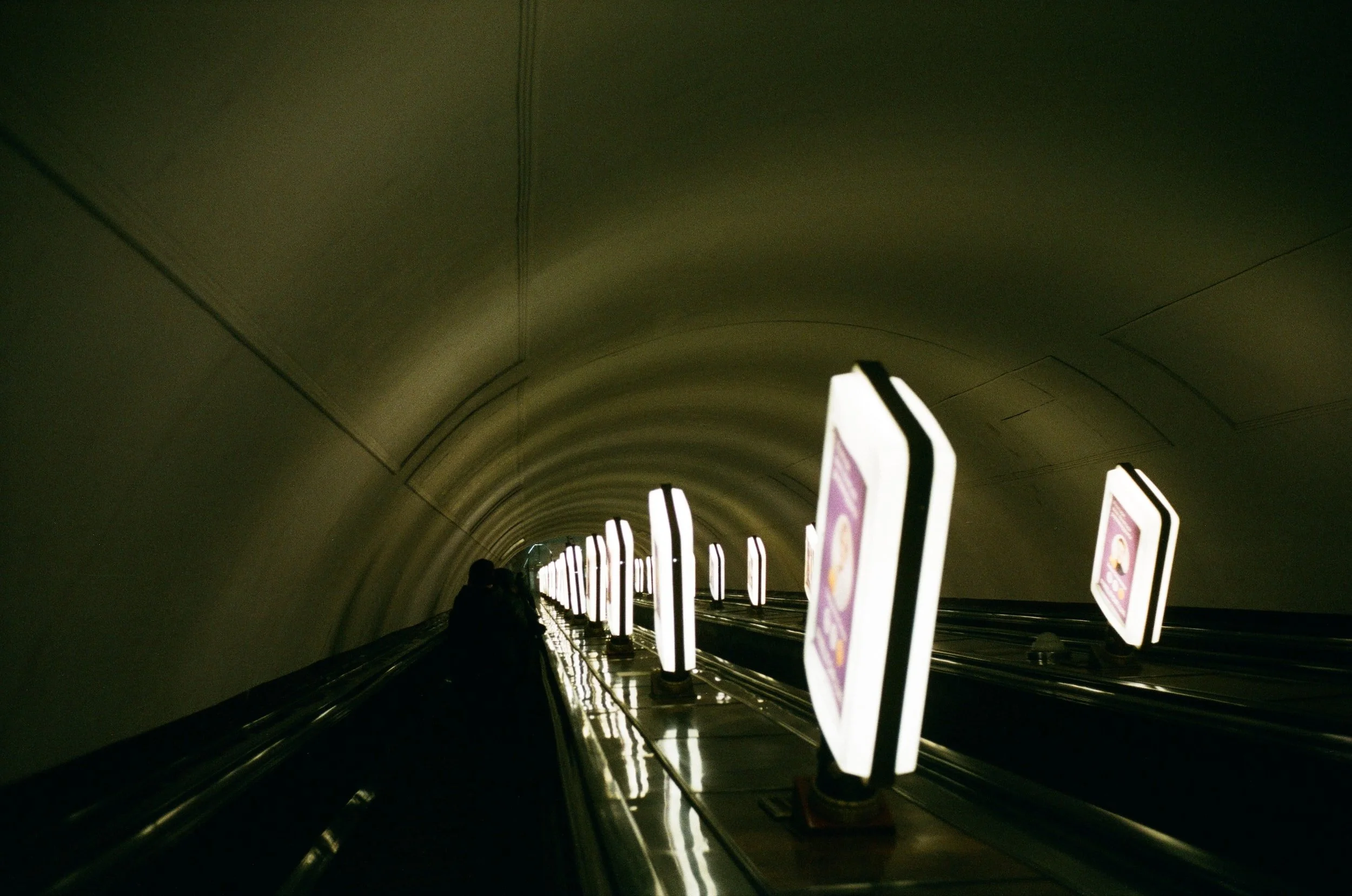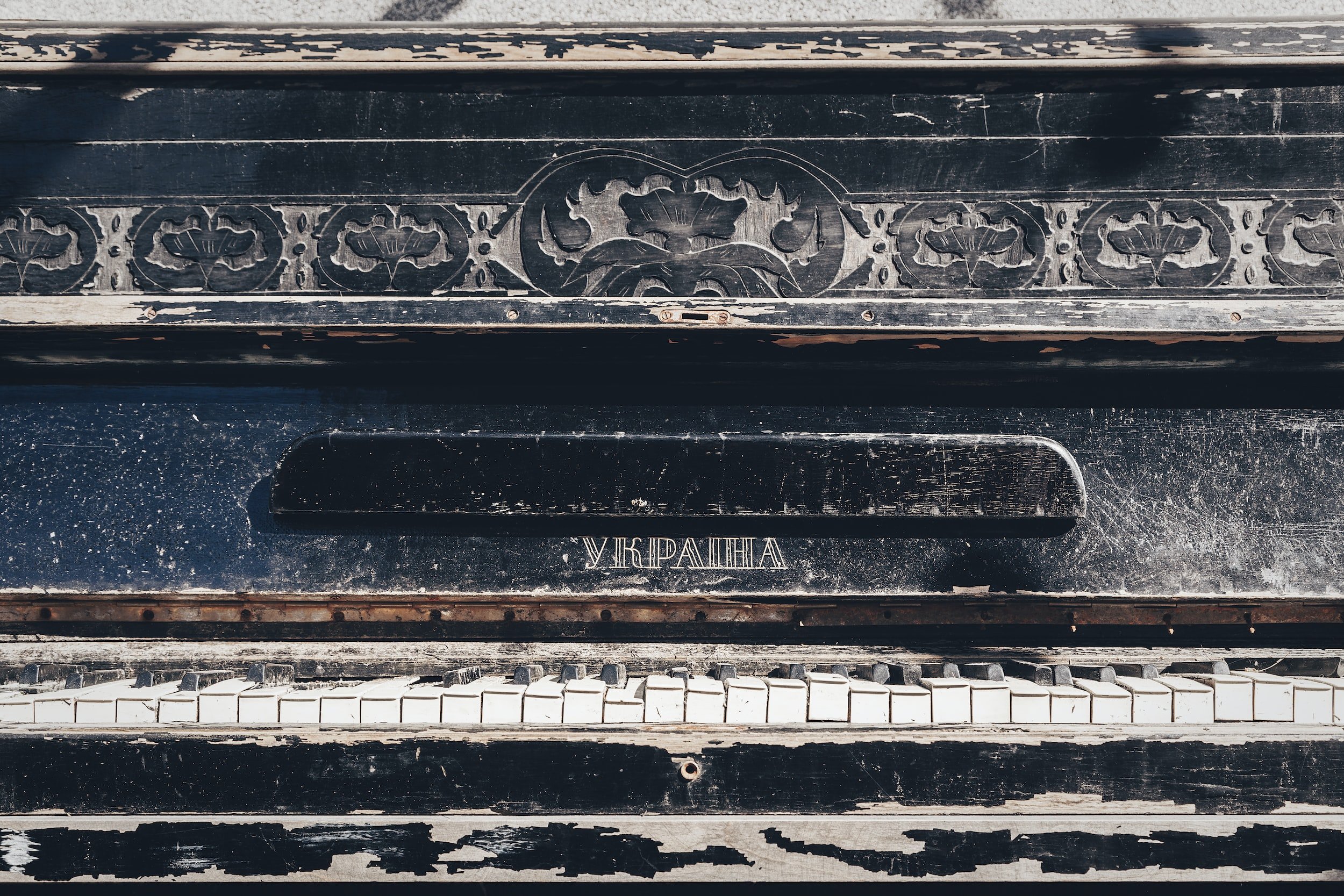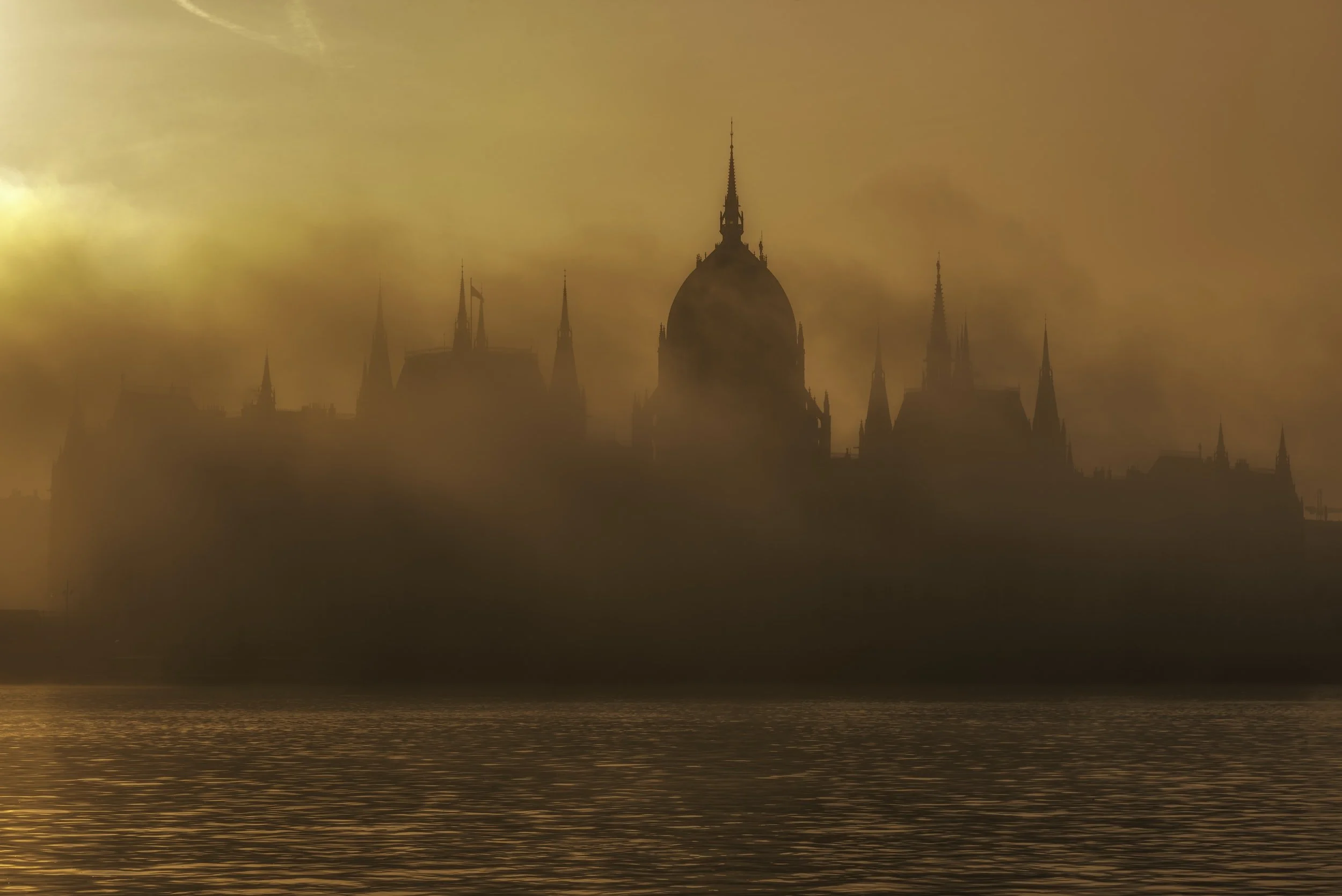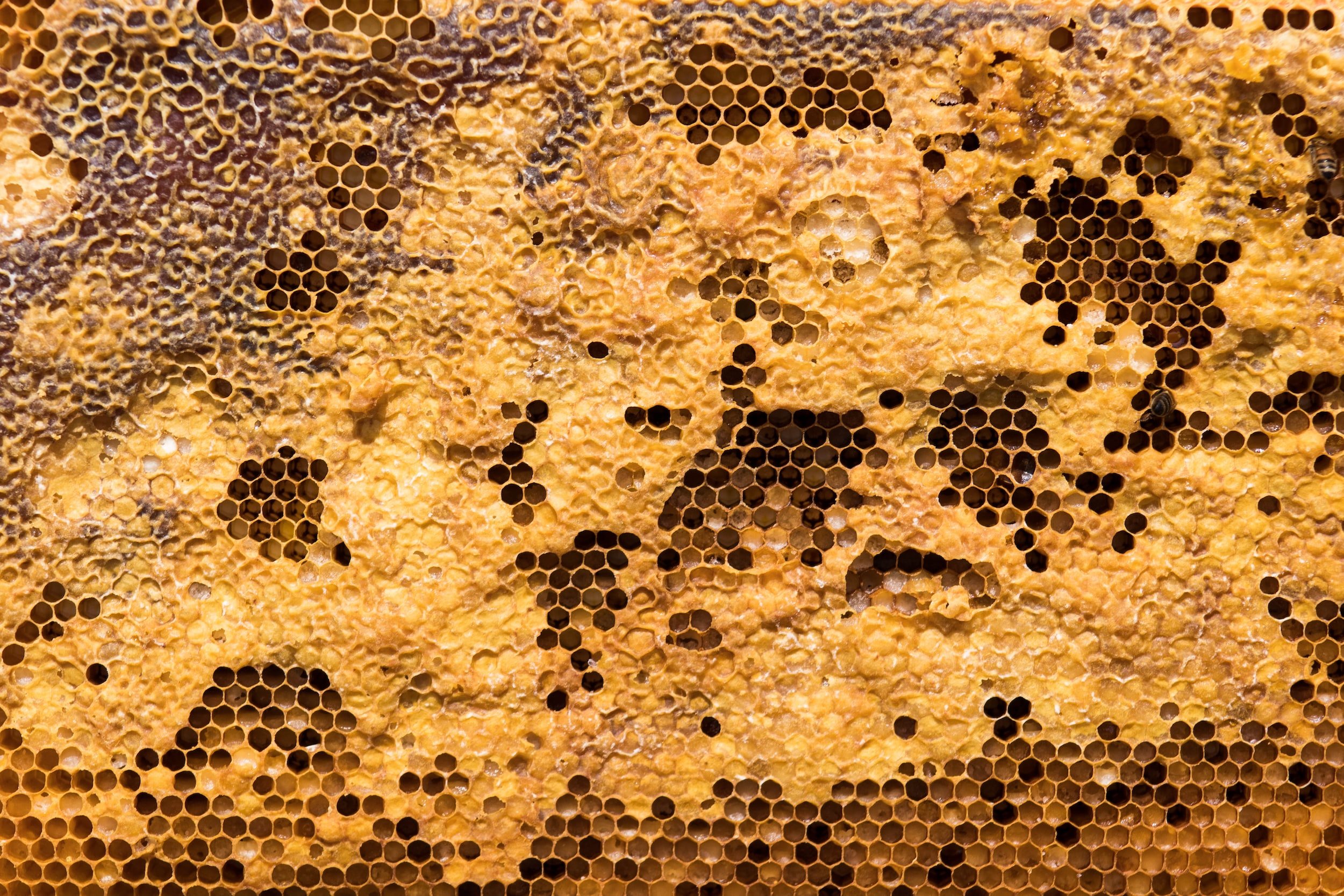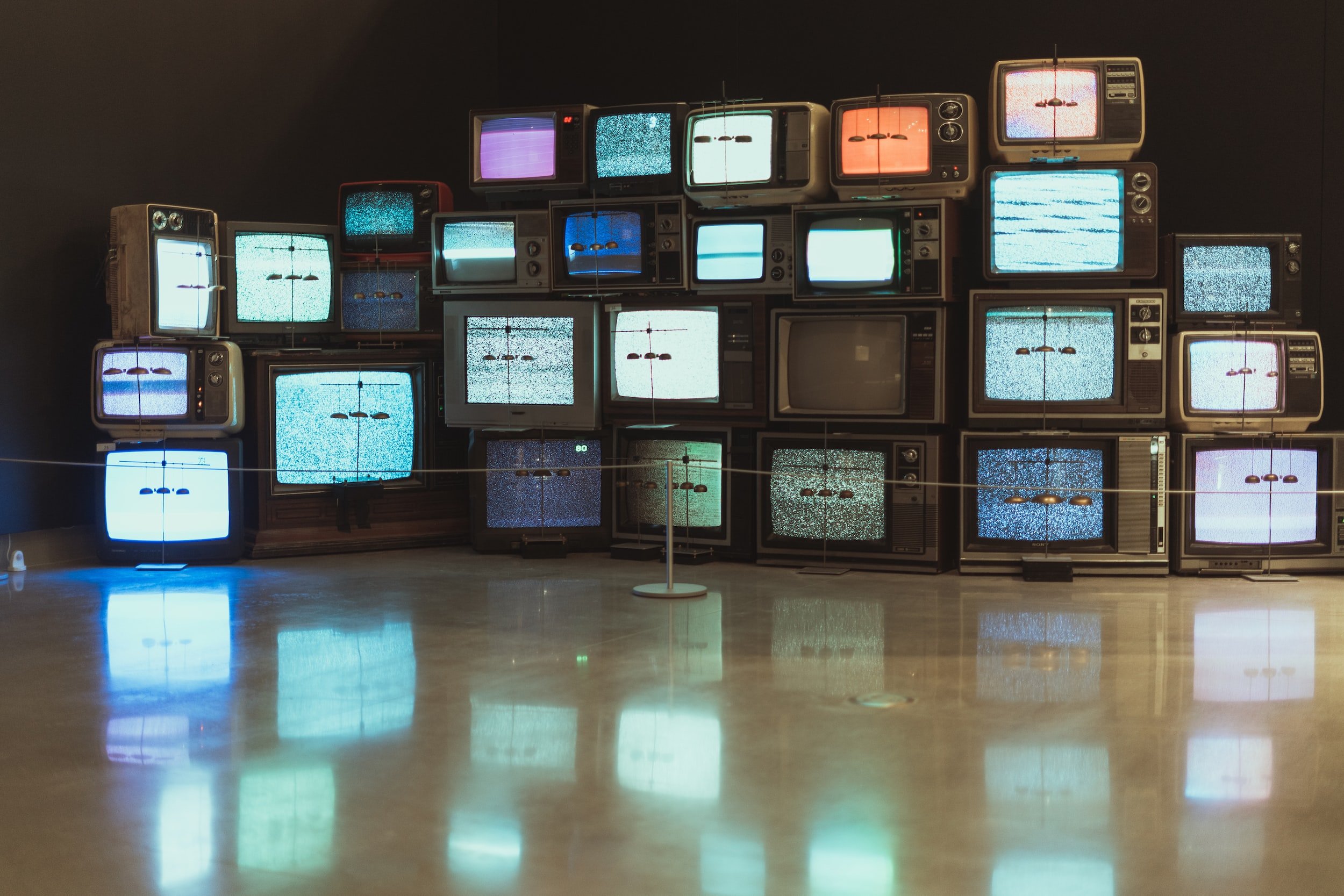by Yevhenii Monastyrskyi
When we made the decision to leave our homes in the midst of a war zone, each one of us consciously chose to remain within the boundaries of our own nation. This choice necessitated a shift from our local identities to our national ones; perhaps more accurately, it involved allowing our national identities to encompass and overshadow our local ones.
by Ada Wordsworth
As we looked up at the plaque listing the names of the writers who had lived here, an air raid siren sounded around us. The sound intermingled with children’s voices in the playground in Slovo’s yard. Many of the writers whose names are on the plaque outside Slovo have been lost to time—their works are unknown even to the most learned of Ukrainian scholars.
Read Moreby Alexandra Keeler
When Russia launched its full-scale invasion of Ukraine, Kyiv-born master embroiderer Tetiana Protcheva turned her talents toward guerrilla art activism. Blending ancient Ukrainian folk art with cutting-edge technology, Protcheva creates embroidered QR codes loaded with digital resources detailing Ukrainian culture. “My mission is to go around the world and show people Ukraine through embroidery,” she says.
Read Moreby Kateryna Iakovlenko
Translated from the Ukrainian by Kate Tsurkan
He's nearly thirty, tall, dark-haired, and always smiling. His name is Bohdan, and he was born into a priest's family. He's an artist working with contemporary art, and just a few months ago, you could see his work at the Hanenki Museum, which is located in the former mansion of a sugar beet magnate and collector in the very center of Kyiv. In the military, he goes by the call sign Pillar.
Read Moreby Juliette Bretan
There was something about placing these artworks together in Cromwell Place – one of those ubiquitous wedding-cake-style townhouses of high Kensington, all whitewashed walls, floor-to-ceiling windows, and clean spotlighting – that made this exhibition, somehow, even stranger; as if each artwork fractures something of reality, or allows a glimpse into another form of it.
Read Moreby Sofika Zielyk
In a few days, I will go to the cemetery with a basket of Ukrainian Easter eggs. In my culture, it is a tradition to place these eggs, called pysanky, and Easter bread on the graves of departed loved ones so that we can symbolically partake in the Easter feast together. This year, however, will be a little different.
Read Moreby Victoria Amelina
Translated from the Ukrainian by Yulia Lyubka and Kate Tsurkan
Since the start of the war, I have developed a cough – it chokes me as soon as I try to say something long and meaningful. Some say it's psychosomatic, while others say it’s because I sleep on the floor. Refugees sleep on the beds and sofas in my Lviv apartment (they say it's better to call them “new neighbors”, and that it's also better to keep quiet about the fact that they are refugees or IDPs).
Read Moreby Iya Kiva
Translated from the Ukrainian by Yulia Lyubka and Kate Tsurkan
Time has never felt as heavy as it does now. It's like carrying a gravestone on your shoulders, bending your spine and distorting every step, an unshakeable weight that cannot be thrown off, like those with back problems cannot find comfort, trapped in the torture chamber of their own bodies.
Read Moreby Kateryna Iakovlenko
There is no place for poetry in war, yet the war has given rise to new forms of poetry. Ruined and abandoned houses, gutted forests, shelled land, and roads scarred by tank tracks began to resemble letters and unwritten sentences. Will someone add to them, cross them out, rewrite them, or throw them away like a crumpled piece of paper?
Read Moreby Haska Shyyan
Translated from the Ukrainian by Kate Tsurkan and Yulia Lyubka
I'm not one to get nostalgic often, so it came as a surprise to me when I was overtaken by an intense and illogical longing to be in Ukraine during those early days of the full-scale invasion; the direness of the situation would likely have resulted in my fleeing to where I already am. I think this desire stemmed from my need to verify the truth of what was happening on my phone screen, which I carefully concealed from my child, pretending to be idly watching something while at work.
Read Moreby Yuliya Iliukha
Translated from the Ukrainian by Kate Tsurkan and Yulia Lyubka
As we drove the familiar route that I had traveled for years, I could list all the villages that dotted both sides of the Kyiv highway from memory. I didn't even need to look at the signs. They had been taken down during the first week of the invasion. As we passed Pisochyn, I was ready to start crying. Kharkiv was just a short distance away, and the images and footage I had been scrolling through on Telegram channels day and night left no doubt that my eyes would well up with tears before reaching Kholodna Hora.
Read Moreby Ihor Pomerantsev
Translated from the Ukrainian by Yulia Lyubka and Kate Tsurkan
The train from Lviv to Kyiv arrived at six in the morning. As I stepped off the train, I was greeted by the song “Chestnuts are blooming again.” Soldiers on crutches stood on the platform. Thirty minutes later, I arrived at the hotel in Podil. At seven o’clock the air-raid siren went off. I headed down to the bomb shelter. My American colleagues were already there, so I attempted to translate a poem by the Kyiv poet Semen Hudzenko for them
Read Moreby Grigory Semenchuk
Translated from the Ukrainian by Yulia Lyubka and Kate Tsurkan
“Where are you from?” asks a group of men in expensive suits in the lobby bar of a small British town hotel. “From Ukraine,” I reply. “Wow, Ukraine! Are you here for the literary festival? How do you like it here?” they ask with genuine enthusiasm. “I like it, but I want to go home. I'm worried about my wife, parents, and friends. Yesterday our cities were bombed again all morning,” I explain. “Why do you want to go back? Bring your families here,” they suggest.
by Miklós Vámos
Translated from the Hungarian by Ági Bori
I am Hungarian, but that doesn’t mean that I am crying over Trianon or wearing old-fashioned folk costumes. It does mean I am a great admirer of the Hungarian language and, throughout my career, I have used it and its malleability to create my distinctive, multidimensional style. I truly enjoy the elasticity of the language. The Hungarian government? Not so much.
Read Moreby Pavlo Matyusha
Making the right choice for your health during times of war is no simple task. It’s an unexpected challenge, much like the sudden sound of shelling. It can force you to reconsider your previous decision to fight for your country, and it’s often accompanied by fear. It’s the fear of what’s yet to come coupled with the longing to take a step back and ponder your life choices.
Read Moreby Taras Lyuty
Translated from the Ukrainian by Yulia Lyubka and Kate Tsurkan
Russia’s war against Ukraine is also taking place at the cultural level. For years, the Russian empire appropriated the achievements of Ukrainian artists and thinkers. The Ukrainian philosopher Hryhoriy Skovoroda is one such example. In 1912, the Russian philosopher Vladimir Ern wrote a book about him. He called Skovoroda a Russian philosopher, explaining that Ukraine was an uncivilized country, and Russia endowed Skovoroda with the opportunity to develop his talent.
Read Moreby Stanislav Aseyev
Translated from the Ukrainian by Kate Tsurkan and Yulia Lyubka
I’m only 33 years old. In my lifetime I already endured electric-shock torture for 2.5 years in the notorious Russian concentration camp known as Izolyatsia, was released from there on a prisoner exchange, found the concentration camp's commandant right in the center of the Ukrainian capital and had the special services arrest him.
Read Moreby Artem Chekh
Translated from the Ukrainian by Yulia Lyubka and Kate Tsurkan
Music became my main companion in those forests, a mandatory addition to a soldier’s arsenal, just like a personal weapon or a tourniquet. Female singers became the soundtrack of my depression, the hellish nimbus of an eternal struggle between good and evil, the deafening sound of my loneliness, and the shadow of a soldier’s frustration.
Read Moreby Khrystia Vengryniuk
Translated from the Ukrainian by Yulia Lyubka and Kate Tsurkan
If we forgive, forget, and swallow it down again, as in 2014, our children will have to live through the same things we are going through now; only they will play the leading roles. This evil never sleeps, so our descendants must be constantly ready for everything. Unlike us, who neglected the words of Taras Shevchenko, Mykola Khvylovy, and Vasyl Stus and missed, overlooked, and underestimated them.
Read Moreby Kateryna Sergatskova
Open the online galleries of international agencies like Getty Images or Associated Press, and you'll see that most photographers in Ukraine capture the remnants of missiles, destruction, corpses, and funerals. War forced wedding photographers to capture funeral processions and fashion photographers to take photos of soldiers in the trenches.
Read More


